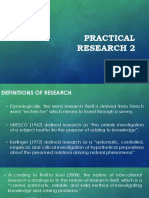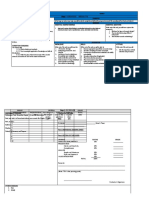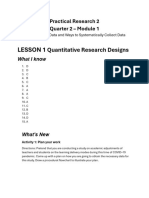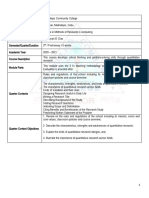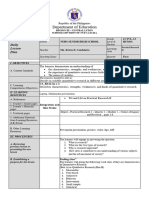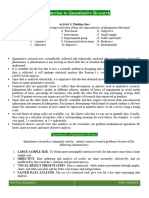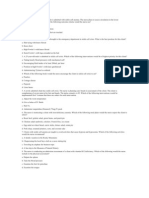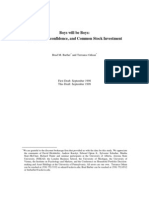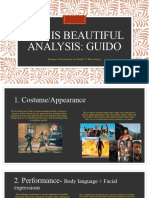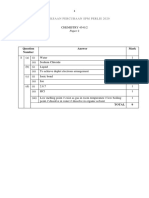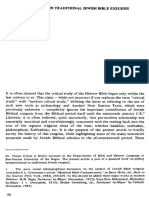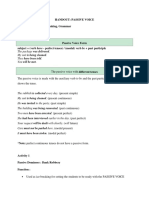ED 803: Quantitative Design and Data Management
Names
of MARK JOSEPH S. AYALA Section: 4
Scholars:
Date of
Program: Doctor of Philosophy major in Reading Education Submission:
November 28, 2022
DISCUSSION FORUM
As an educator, what are the important considerations in designing a quantitative research to
address a specific research purpose or problem and what are the specific competencies that a
research must have in order to effectively conduct a quantitative study? (Maximum number 2
pages)
Before creating a quantitative research project, you must decide whether it will be descriptive or
experimental, as this will affect how you gather, analyze, and interpret the results. Subjects are
typically measured only once; only associations between variables are intended; and the study
may include a sample population of hundreds or thousands of subjects to ensure that a reliable
estimate of a generalized relationship between variables has been obtained. These are the rules
that apply to descriptive studies. In order to establish causality between variables, an experimental
design involves measuring participants both before and after a certain treatment. The sample size
may be relatively small and intentionally chosen.
The value/contribution of quantitative research in education is to gain a better understanding of the
social reality. To examine situations or events that have an impact on people, researchers utilize
quantitative methodologies. Quantitative research generates unbiased data that can be explained
in detail using statistics and figures. Education is crucial in quantitative research for a variety of
reasons. First off, education aids in the development of the abilities required for conducting
research. Second, education aids researchers in gaining a comprehension of the fundamentals of
quantitative research, which is necessary for doing fruitful research. Thirdly, education aids
researchers in gaining a grasp of quantitative research methodologies and strategies, which is
1
Philippine Normal University
� ED 803: Quantitative Design and Data Management
necessary for doing successful research. Last but not least, education aids in the development of a
researcher's grasp of the statistical tools and methodologies utilized in quantitative research, which
is necessary for doing successful study.
When planning your research, you must think practically as well as scientifically. You must take
research ethics into account if your study uses people or animals.
1. How long will it take you to gather information and prepare the research report?
2. Will you be able to access the information you require (for example, by visiting a specific
site or getting in touch with particular people)?
3. Are you proficient in the relevant research procedures (such as statistical analysis or
interviewing methods)?
4. Will you require ethical clearance?
Make sure your choices are practically possible at every stage of the research design process.
Plans and techniques for conducting research are called research designs. Extend the
judgements from general hypotheses to specific techniques method gathering and analyzing data.
This plan necessitates a number of decisions, which do not have to be made in the sequence in
which they make sense. The final judgement determines what method should be utilized to
examine a subject. This choice should be based on the researcher's presuppositions about the
world, their techniques of inquiry (referred to as tactics), and their chosen strategies for gathering,
analyzing, and interpreting evidence. The kind of research topic or issue being addressed, the
researchers' own experiences, and the study's target audiences are all taken into consideration
when choosing a research design.
In conclusion, education is critical to quantitative research because it aids in the development of
the skills, information, and understanding that are necessary for successful research.
2
Philippine Normal University









